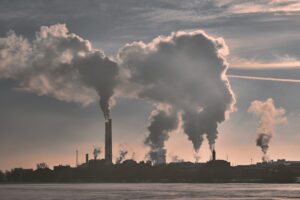A major UK-led international research programme is being launched to tackle nitrogen pollution in South Asia.
The UKRI GCRF South Asian Nitrogen Hub will study the impacts of the different forms of nitrogen pollution to form a better picture of how the nitrogen cycle works. In particular, it will look at nitrogen in agriculture in eight countries – India, Pakistan, Bangladesh, Nepal, Afghanistan, Sri Lanka, Bhutan and Maldives.
It is being supported with £17.1m of funding from central government and £2.5 from other partners and will be led by the Centre for Ecology & Hydrology (CEH).
Gases such as ammonia (NH3) and nitrogen dioxide (NO2) are produced from chemical fertilizers, livestock manure, and burning fossil fuels and is connected to air pollution, biodiversity loss, the pollution of rivers and seas, ozone depletion, health, economy and livelihoods. According to the CEH, previous efforts have addressed only specific aspects of the problem, and it is hoped the new Hub will bring these together in a more coherent approach.
Science and Universities Minister Chris Skidmore said: ‘The UK has a reputation for globally influential research and innovation, and is at the centre of a web of global collaboration – showing that science has no borders.
‘We have a strong history of partnering with other countries – over 50 per cent of UK-authored research involves collaborations with international partners. The projects being announced today reinforce our commitment to enhance the UK’s excellence in innovation at home and around the world, driving high-skilled jobs, economic growth and productivity as part of the modern Industrial Strategy.
Professor Tapan Adhya, Hub Co-Director for Science, who is from the Kalinga Institute of Industrial Technology, Bhubaneswar, India, one of the partners in the South Asian Nitrogen Hub, said: ‘High doses of fertilizer input of nitrogen to agriculture combined with low nitrogen-use efficiency mean that research on nitrogen pollution must be a priority for South Asia. This is emphasised by the scale of nitrogen subsidies across South Asia at around $10bn per year.
‘Better nitrogen management will have huge economic and environmental benefits.’
The UK Government published its Clean Air Strategy last week (January 14), which introduced new measures to cut down on ammonia pollution at home.
It was announced there will be new regulations that will require farmers to use new farming techniques as well as regulations that will minimise pollution from fertiliser use, including low emissions techniques for spreading slurries and digestate on land such as by injection.
A group of leading health charities said that by cutting worldwide ammonia emissions by 50% could prevent the equivalent of around an estimated 250,000 premature deaths globally each year.














